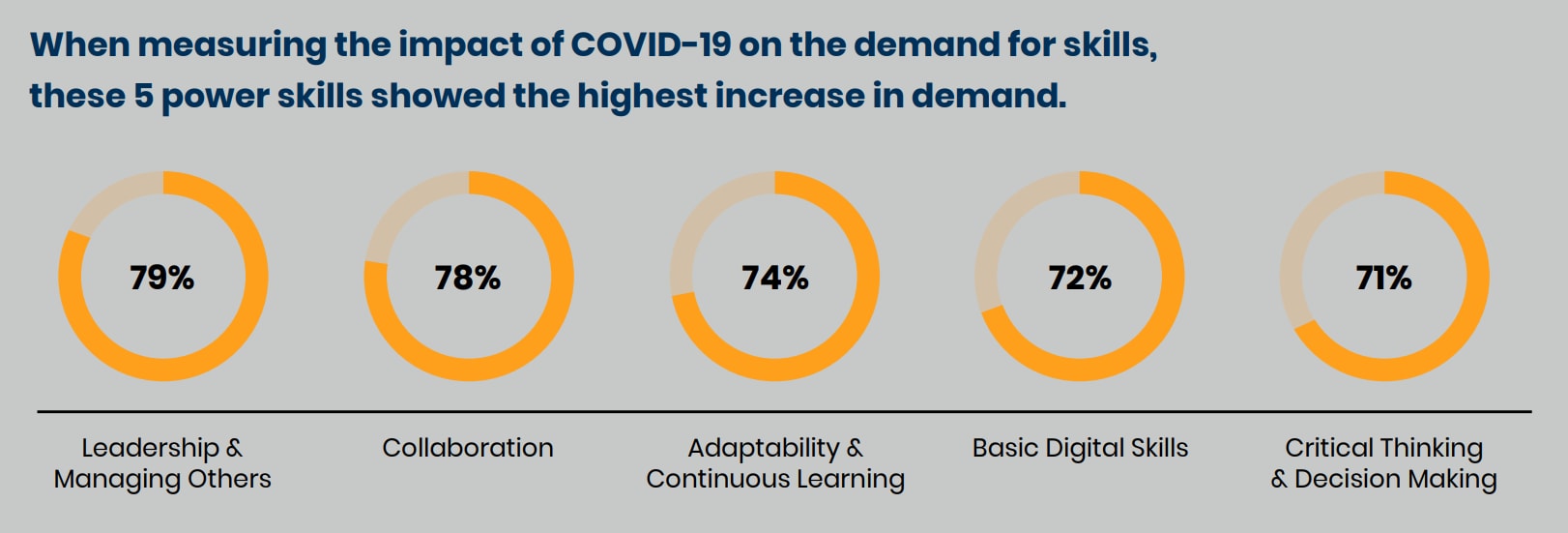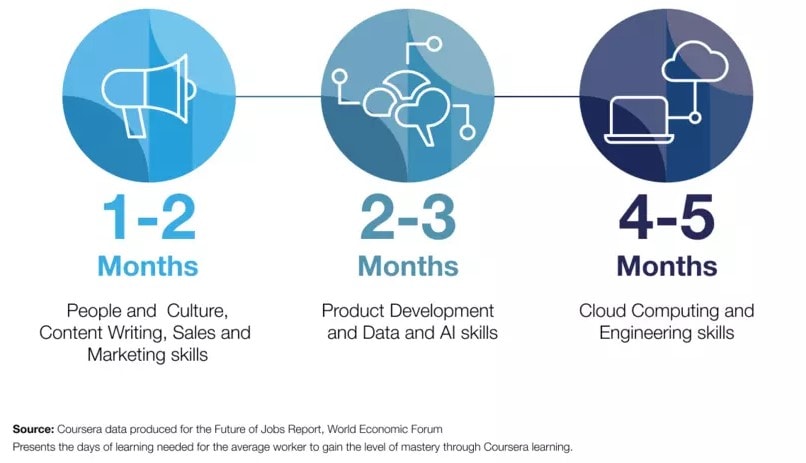Which Job Skills Will Survive the Future of Work?

As the future of work continues to evolve with every innovation to technology and shift in society, both employers and employees will need to understand which job skills will be relevant in the future.
Recently, Pearson and People Matters collaborated on the 2022 Power Skills Survey of 180 organizations across 10 counties to gain a better understanding of the power skills (skills that will power the future of work) for 2022 and beyond.
Power Skills of the Future
In their discovery, they found that human-centric, people-based skills will be in high demand as talent needs shift and harmonize with technological change. In particular, the following skills are projected to grow in demand: leadership, collaboration, adaptability, digital fluency and critical thinking.
Top 5 power skills to look out for in 2022

In addition to these skills, the World Economic Forum also includes self-management and complex problem-solving as work skills of tomorrow. And while these types of soft skills have always been considered important in the workplace, demand is growing for core human-centric abilities as automation and AI take over many previous job functions.
Automation outdating hard skills?
By 2025, over half of all workplace tasks are projected to be carried out by machines. The Future of Jobs report predicts that some 75 million jobs worldwide will be lost by 2022. However, 133 million new jobs will be created. In the transition, workplace talent demands will shift from hard skills to soft skills.
The pandemic made this change in skill demand more apparent, as remote work and other new workplace adaptations were required by organizations. As Zahira Sughra Zainuddin, Head, Group Strategic Business Alliance, Petronas noted, “Whilst COVID-19 has certainly accelerated the need to reskill our human capital, it is a necessity and priority we had already identified prior to the pandemic. This is because the way of working has shifted, and there is a real need to apply different workforce skills in a more digital and agile world.”
With advanced technology and societal changes eliminating jobs and creating others, the need to relearn is becoming a constant and soft skills are becoming more critical to success. Future-proofed skills are ones that no technology can replace, and inherent human attributes that can’t be coded, such as communication and emotion, will continue to see higher demand.
Investing in the skills of the future
As such, more organizations will need to invest in the skills that impact the future of work. According to Greg Miller, Executive Director, Faethm, “Many organizations today are facing increasing workforce disruption, as skills gaps grow and as past workforce planning tactics prove less effective in an increasingly digitalized workplace. HR and L&D leaders need clear, comprehensive data to confidently predict future skills needed so that they can make the right recruitment and reskilling decisions.”
Reskilling employees for jobs of the future is not just important to commercial success, it’s also instrumental in improving social mobility. A new report found that a 10% improvement in global social mobility would boost economic growth by nearly 5% over the next decade. And as traditional pathways from low- to high-wage work begin to disappear, workplace educational programs will play a key role in fostering upward mobility.
The challenge in closing skill gaps
But while most companies understand that reskilling is the key to success and business survival, many are still challenged by a lack of organization-specific data to back up the need for reskilling – or they have limited budgets and time to support continuous skill-building.
Reskilling requires a higher level of organizational assessment, and many companies struggle with either not knowing how to identify skill gaps or how to go about launching an effective learning program to address their future needs. Readiness timelines can complicate matters further, as some skill gaps can be filled faster than others. For example, it could take just one to two months to acquire proficiency skills for certain emerging professions and up to four months to move employees into more tech-savvy roles.
Time needed to start building new skills online in jobs of tomorrow

To overcome these challenges, many organizations are turning to outside expertise. Recently, Pearson acquired Faethm’s state-of-the-art AI technology to help organizations find effective reskilling solutions. First, by conducting a skills gap analysis to identify core lacking competencies within an organization, and then by creating a strategic skills roadmap—targeting individualized learning plans through Accelerated Pathways, Pearson is able to connect employees with the right reskilling and job advancement pathways.
Interested in learning more? Find out how we help organizations build a workforce that’s more competitive, engaged and prepared for the future!
